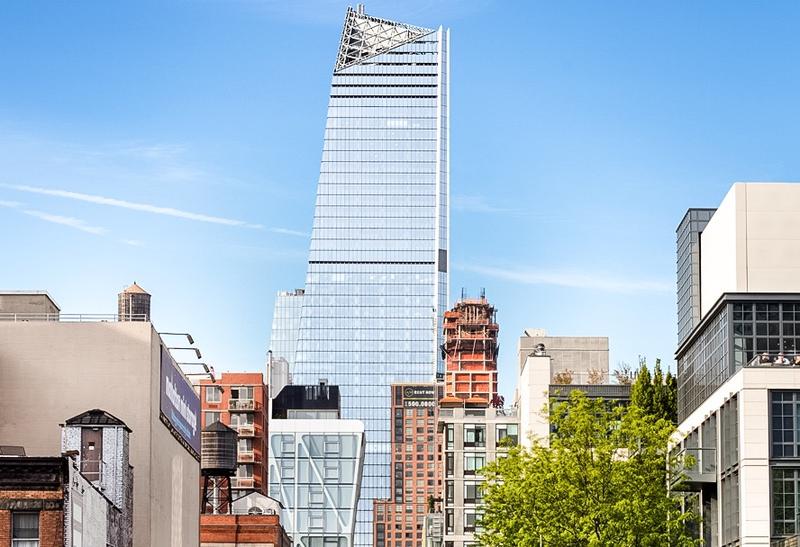
New York City's massive far West Side project called Hudson Yards officially opened its first office building Tuesday.
The 52-story building is the first of sixteen expected to come online by 2025.
The new development will include 17 million square feet of commercial and residential space; more than 100 shops and restaurants, and will accommodate 125,000 office workers and residents. It will stretch from 29th to 43rd streets, and from 7th avenue west to 12th avenue when finished.
“Hudson Yards is the most ambitious development ever undertaken in the country and positions New York City for continued global leadership,” said Stephen M. Ross, Chairman and Founder of Related Companies.
To foster this kind of transformation, the city used a unique financing model called value capture. It created the Hudson Yards Infrastructure Corporation to finance the property acquisition and infrastructure work associated with the project, including the extension of the MTA's No. 7 subway line.
Instead of financing Hudson Yards through its capital program, the city took out $3 billion in bonds, and then pays the interest on that debt with the revenues earned through property taxes.
That was the plan, but the city continues to have to cover the cost of the interest, instead of using property tax revenue, because Hudson Yards projects have been slow to come on line.
"A lot of the reason why these revenues of the Hudson Yards have been delayed has to do with the recession,” said Elizabeth Brown, a supervising analyst with the New York City Independent Budget Office.
Brown authored a new report released Tuesday that focuses on the Executive Budget. It found that the city's interests payments for Hudson Yards have exceeded amounts originally projected.
Estimates expected the city's share of the interest would cost between $7.4 and $205 million. Instead, so far the city has paid out about $360 million in interest.
"That's money that could have gone to other things," said Brown.
The city faulted the IBO report for failing to include certain revenue streams.
"In actuality, Hudson Yards has been and continues to be a financial success for the city," said Alan Anders, President of HYIC & Deputy Director for Finance for the New York City Office of Management and Budget.
In a statement, Related Companies said the city's investment in infrastructure at Hudson Yards was the catalyst for billions in private investment by a number of developers, and created thousands of jobs.
